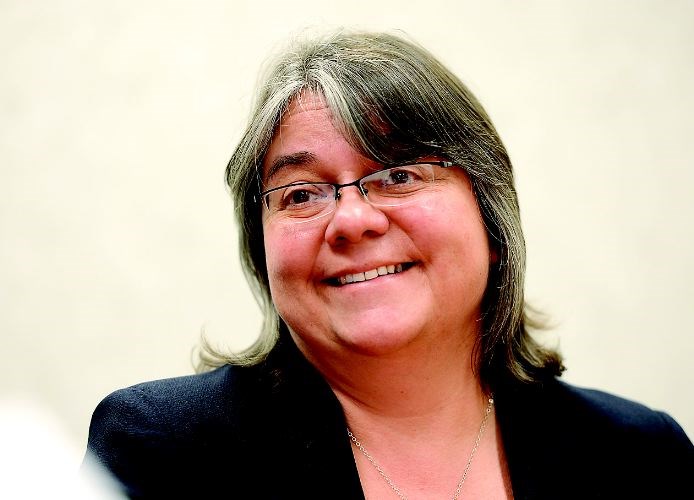Although there is now a confirmed Ebola case in North America and concerns about the highly infectious disease migrating to Canada, the chief medical officer for Northern Health is confident area residents can rest easy.
Having a strong healthcare system in the western world is the best medicine when it comes to preventing a Canadian Ebola outbreak, said Dr. Sandra Allison
"I think it's very important to put this into context," she said. "The spread that we're seeing in Africa is probably caused by their health system characteristics. They don't have a well-funded public healthcare system like we do."
This Ebola outbreak has been going on since March mostly in West Africa, with Sierra Leone, Guinea and Liberia seeing some of it, too. There is localized transmission in Senegal and Nigeria and Democratic Republic of Congo has some cases all its own, said Allison.
Ebola, formerly known as Ebola haemorrhagic fever, is a severe, often fatal illness in humans.
The virus is transmitted to people from wild animals, like fruit bats and monkeys, and spreads in the human population through human-to-human transmission by direct contact with blood and other bodily fluids of infected people, and through exposure to clothing and bedding contaminated by these fluids.
"An important point is that somebody who has Ebola isn't contagious until they are quite sick," said Allison. The incubation period is up to 21 days and they are not contagious during that time.
Symptoms include a sudden onset of fever, weakness, pain in muscles, headache and sore throat and that's when the vomiting, diarrhea, rash start and organs are affected like the liver and kidneys, said Allison. The advanced symptoms are seen in those countries affected now because of their weak healthcare systems, she added. There are no cases that have been diagnosed in B.C. or in Canada, said Allison.
"In the western world, with our healthcare system the way it is and our public health system and our screening protocols, we have a lot of catch safes in place," said Allison. "The Canada Border Services Agency has prompts in place so that right away they're asking people about symptoms and their health status."
Allison points out that there are no direct flights from the affected areas of the world that land in Prince George so there are many airport authorities people have to pass through before they arrive here.
"The things we have to reflect on are what are the differences between West Africa and Canada," said Allison. "We have a very well organized health system, we've got very good health status, our population is much healthier and that's why we are seeing so much transmission of the disease there."
The man found in Texas had traveled to an endemic area and then returned to the States, Allison said.
"There are travel alerts asking people not to travel to areas where there are wide spread and intense Ebola activity and people should be aware of that," said Allison.
Every healthcare provider is acutely aware of the Ebola outbreak and would be asking patients about their travel history.
Of course, with a significant outbreak of any disease comes a certain amount of response preparedness. The Public Health Agency of Canada and the British Columbia Centre for Disease Control have extensive guidelines for protocol for outbreaks and the Northern Health infection control and outbreak response team are available around the clock with one of four medical officers at the ready.
"And we always use universal precautions," said Allison. "That's something that well-resourced countries like Canada always use - like gloves and masks - and that's something that might not be available in countries that are not as well resourced."
The Prince George Airport Authority has been notified as well.
"Through Health Emergency Management BC, the regional lead reached out to them and talked to them about procedure if someone was sick on a plane landing in Prince George," said Allison.
The plane would be quarantined until a medical health officer could be on site.
"We are on point and ready to go with this and I think the really important message to get out to people is there are key differences in the health systems and while we recognize there is going to be travel, we're ready regionally, provincially and nationally. Pieces are in place should an individual present symptoms and we're ready to deal with it."



